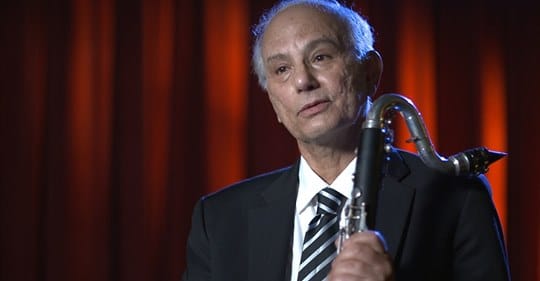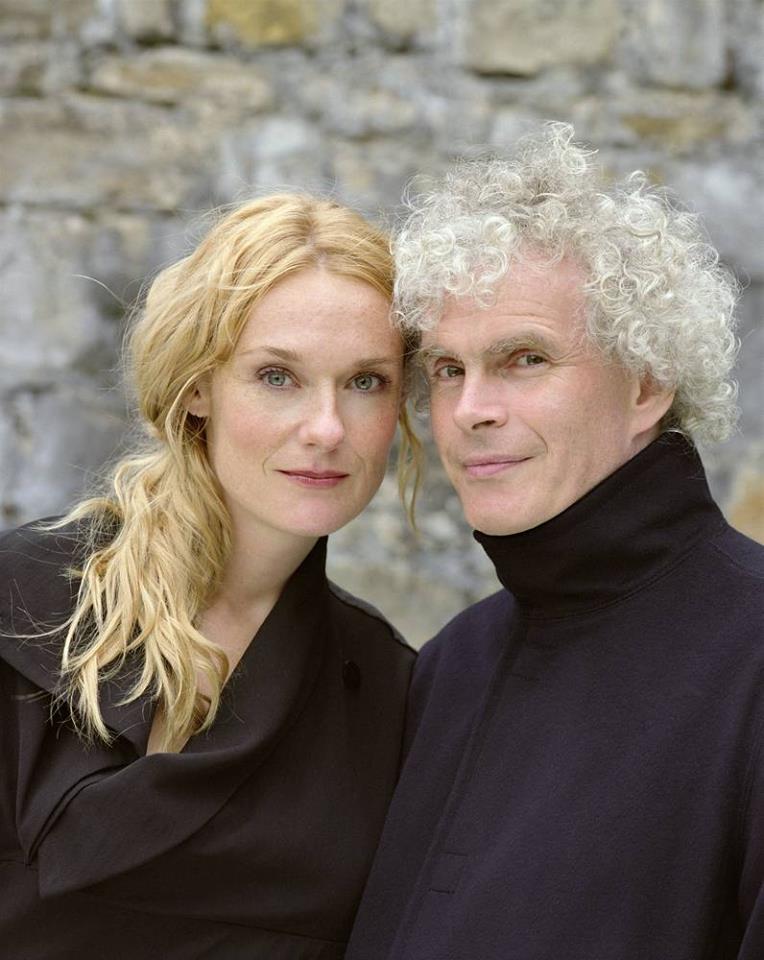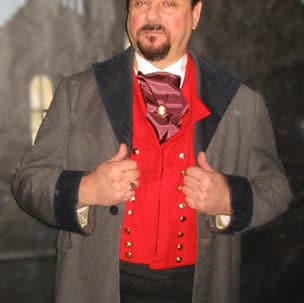One of the loveliest Covid-era recordings:

One of the loveliest Covid-era recordings:

The scene tonight as members of the national orchestra played outside the house of Benjamin Netanyahu, protesting at his mishandling of the Covid crisis and other issues.
Click here if video fails to play.
The videos were posted on the Philharmonic social media, an unprecedented rebellion..
IPO statement: Five months have passed since the Israeli Philharmonic Orchestra came down from the stage. In this period, the instructions for us were changed not once and not twice, until finally all the cultural institutions in Israel were completely closed. The fitness clubs, hotels and restaurants have also opened, but the cultural halls choose the state to leave closed. Also the many efforts we took, to hold our concerts under the most stringent instructions, in order to keep your health and the health of the musicians did not help, so it’s time for us to raise a scream voice. At 19:30 pm, we will demonstrate in front of the Prime Minister’s Daycare in Jerusalem, and fight for our right to play for you, our dedicated audience. We all hope that soon we will be able to return to the stage and see you all. We can’t leave this stage empty!

Fellow-musicians are reporting the death of James Ognibene, solo bass clarinetist with New York’s Metropolitan Opera Orchestra since 1986.
Hailing from Warren, Ohio, Jim served four years as a member of the United States Marine Band and White House Orchestra in Washington, DC, before arriving at the Met.

Met clarinet Jessica Phillips writes: For 18 years I sat next to this humble, hilarious, incredible person. We saw each other through many ups and downs over the years, always with respect and a LOT of laughter. My first year in the orchestra, I often got in trouble for laughing at Jim’s dry, often self-deprecating witticisms. Jim had the most amazing sound on the bass clarinet. Even though he liked to say “playing bass clarinet is basically hours of boredom followed by 3 minutes of sheer terror”, he never ceased to amaze his colleagues across the orchestra with his musicianship. Even audience members knew he was a rockstar, especially during the Ring Cycle. Once, in having to end the rehearsal before finishing the Clemenza di Tito basset clarinet aria (for which Jim had already waited two hours to play), the conductor asked Jim “Are you ok?” and Jim instantly quipped “I make a living,” to which the entire orchestra roared in laughter, including the conductor. Even with his humor, Jim’s seriousness about bringing his absolute best each and every night, no matter what was going on, is one of the things I truly respected and loved about him. He was the consummate professional. My heart is so heavy that we have lost this gentle giant of the bass clarinet. He will be missed dearly. Words really cannot do him full justice, so for now, we hold him and his family in our hearts, and toast him on his way…
The former Columbia Artists vice president Damon J. Bristo was arrested in St Louis on July 23 on a charge of ‘sex trafficking child lt 18 2nd’, according to the police mugshot (below). This translates as child sex trafficking in the second degree.
Bristo, 39, was until yesterday Director of Artistic Administration at Opera Theatre of St. Louis. His name has been erased from the website.
OTSL issued this statement: We were shocked by the allegations of criminal activity, which have no link to his employment or role with us. Upon learning of the arrest, the employee was immediately placed on unpaid leave and later resigned. We have a strict code of ethics and strong values that we expect our employees to uphold inside and outside of the workplace.
Damon Bristo was a Vice President and Artist Manager in the Opera/Vocal management group at Columbia Artists, stepping down on September 13, 2019 to go to Opera St. Louis.
During his career, he represented Isabel Leonard, Deborah Voigt, Ryan McKinny, Tamara Wilson, James Morris and Amanda Majeski among other well-known singers.

We have no further details at present.
Presumptions of innocence apply.
UPDATE: In other St Louis news, the Symphony has cancelled its concerts to the end of the year.
The enterprising conductor and his wife Magdalena Kožená will broadcast a live concert from Brno in the Czech Republic this Thursday.
Kino Scala, Aerofilms and the US company PARMA Recordings will broadcast the recital live from 9pm in the courtyard of the Governor’s Palace.
Link here.
Kozena says: ‘The atmosphere of a home concert in the unique environment of Villa Tugendhat, which is also taking place in my hometown, charges the whole performance with strong emotions. I included in the program songs that accompanied me while studying at the conservatory, and many of them include folk melodies or lyrics. I have the most intimate relationship with them, because they not only reflect the enormous wealth of folk creativity of our region, of which I am rightly proud, but they also remind me of the happy moments of my childhood and youth.’

Oberlin Conservatory in Ohio has received demands from a group of students for:
1 Inclusion of Black faculty in governance
2 An anti-racism colloquium
3 An African American music department
4 Community outreach
5 Creating a culture of anti-racism
6 Ensuring that staff hired in future have an awareness of the importance of Black music
7 Black music to be part of audition requirements
… and more.

And this has landed at Blair:
To the administration, faculty, staff, and board of the Blair School of Music,
Throughout their history, music institutions such as schools and ensembles have
benefitted from and perpetuated systems of white supremacy while constructing rhetorical
frameworks that rationalize prejudice. These same systems permeate our inherently racist
society and manifest in the recent police murders of Breonna Taylor, Tony McDade, George
Floyd, and thousands of Black people, Indigenous people, and people of color. On June 13th,
the Blair School released a statement in the wake of these losses, affirming its “dedication to
equity, diversity, and inclusion.” These buzzwords ring empty without a comprehensive and
transparent plan to act on that dedication, as some other music schools have published. The
writers of this letter, being a group of white and non-Black people of color, feel responsible to do
our part in dismantling these racist systems. As a coalition of Blair School of Music students
and alumni with a deep appreciation for the quality education and intellectual rigor our
school provides, we write this letter with three aims:
● To acknowledge how our school has avoided meaningfully addressing white supremacy
and anti-Blackness in our institution and the music field at large;
● To propose a course of action to begin becoming an actively anti-racist institution;
● To start a dialogue with Blair administration, faculty, staff, and board members about
how to implement lasting changes.
Singers are lamenting the sudden death of the stage director and baritone Nathan Hull, who headed Amore Opera from 2009 and often sang in its productions. He was reportedly listed for heart surgery. Before founding the company he was a computer science professor at New York University.

Iris Karlin writes: So many friends around me are hurting the terrible loss of Amore Opera’s father and founder, Nathan Hull. I wish I could help ease your pain and comfort you. The best I can do is offer my Amore Opera family an online meeting , A “wake” if you wish, to console each other with wonderful memories of this wonderful man.
Since there are thousands of souls he had touched, we will have to limit each gathering (not because of social distancing, as it will be online, but in order to offer everyone the opportunity to talk and share). So we will have several “wakes” this week, starting tomorrow, on our regular rehearsals hours (7:30-10pm) and later tonight I’ll send a sign up sheet for people to sign in advance for the zoom call.
Can I ask your help coming up with a great Nathan style or G&S style title to replace the words “zoom wake” ?
Jonathan Dauermann: I’m not sure how many of you are familiar with the name Nathan Hull, but I’ve been trying to figure out all day how to talk about him. Nathan Hull was the founder, leader, and creative lifeforce of Amore Opera, one of a vanishingly small number of independent opera companies in New York City, especially those that use full sets, costumes and orchestra. Nathan staged many opera productions over the course of his career, giving performance opportunities and career boosts to many, many singers. He undoubtedly was planning to stage many more in the years to come.
Nathan died yesterday, very suddenly. If you click on his name, you’ll start to see the outpourings of grief that countless singers, musicians and artists have been posting since this news broke. If it looks like the whole NYC opera scene is mourning his passing, it’s because Nathan Hull was one of the BIGGEST supporters of that scene, a man who made the impossible possible.
Running an opera company is one of the most insanely difficult and seemingly pointless things you can try to do. It will never make money, it will never be easy, it will never be something that makes you famous. Nathan Hull poured his heart and soul into his opera company. He truly, TRULY loved opera, music, theatre, and creating opportunities for everyone else to join in the party and make something beautiful with him. Moreover, he was a kind, warm-hearted, quick-witted presence; he was just a wonderful man, and he made opera and the music he loved possible for many, many people.
For opera singers trying to advance their careers, true performance opportunities are VERY hard to come by. Nathan Hull gave many, many people chances to perform, to do what they loved because it’s what he loved and he was dedicated to sharing it with as many people as he could. I was very lucky to be included in a couple of Amore productions; Nathan helped me move forwards towards my dreams, he created opportunities where none had existed, and he always treated me with kindness, respect and joy. The world needs more Nathan Hulls in it.
To call him a “pillar of the community” feels trite and inadequate. I can’t think of anyone else I met in my opera career who worked harder than Nathan to lift up and support so many other people. The NYC opera community, though I haven’t been a part of it for years now, is a tight circle, a surprisingly small house. Losing Nathan makes me feel like the whole roof has been torn off.
I hope anyone reading this will look into his name, learn a little about his life, and celebrate his memory. I’m grieving for his family and close friends, people who worked with him for decades and love him dearly. He made my life richer and better, just as he did for most all of my colleagues. I will always remember him and be grateful for having gotten to cross his path.
Rest in peace, Nathan. Thank you for everything.
Daniel Kravetz: I first met Nathan Hull in 1980. He was already a member of the Gilbert & Sullivan Society of New York, of which I am now President, and he had just moved to New York City, where his first major assignment was as stage director of PRINCESS IDA at the Village Light Opera Group, using a brilliantly conceived setting of the show in outer space. He directed other VLOG shows, and on two occasions, VLOG’s annual fall G&S show was SCROOGE & GILBERT & SULLIVAN, Nathan’s own adaptation of Dickens’ A CHRISTMAS CAROL. Nathan’s frequent activity in Amato Opera for many years was well known, and when that company announced its imminent closure, my first reaction was to email Nathan, urging him to step in and keep the Company alive with as much of Amato’s people and property as could be salvaged. I’m sure I wasn’t the only one with this idea, and the result was Amore Opera, Nathan’s crowning achievement, which I hope will continue as his legacy. Nathan and I found ourselves sitting together at the Blue Hill Troupe’s MYSTERY OF EDWIN DROOD last November, chatting about our various activities. Not long after that, I decided that what New York needed was a performance of THE PIRATES OF PENZANCE on February 29, 2020, in honor of Frederic’s 41st birthday, produced and conducted by Yours Truly. I was able to throw together a cast of principals, a chorus and an orchestra and rent the Riverside Theater for the occasion, and was delighted that Nathan was able to join us in the role of the Sergeant of Police. He was also in the chorus of pirates in Act I and helped out with the semi-staging of the show. Here is the video of the last performance of a Gilbert & Sullivan Opera in New York City, and the last public performance by the wonderful Nathan Hull:
The Berlin Senate has finally allowed choirs to sing again indoors.
A new hygiene protocol permits singing at a distance of at least four meters from the audience in order ‘to achieve a sensible balance between minimising Covid infection risk and the need to sing together again in churches and choirs.’

UPDATE: From the new regulations: